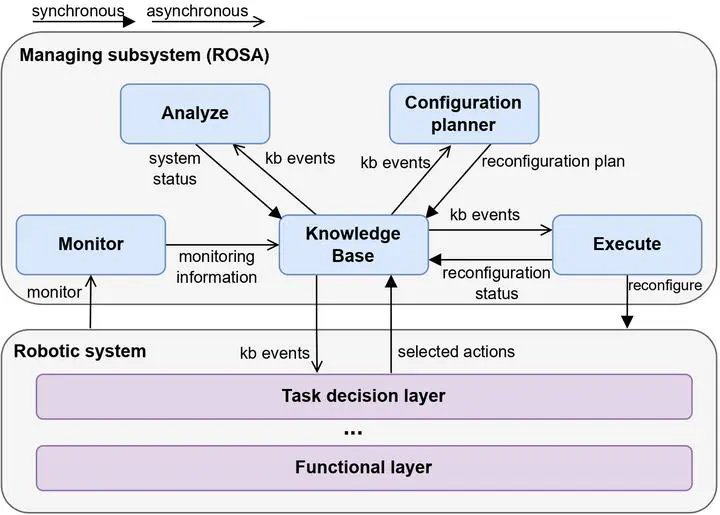
Abstract
Autonomous robots must operate in diverse environments and handle multiple tasks despite uncertainties. This creates challenges in designing software architectures and task decisionmaking algorithms, as different contexts may require distinct task logic and architectural configurations. To address this, robotic systems can be designed as self-adaptive systems capable of adapting their task execution and software architecture at runtime based on their context. This paper introduces ROSA, a novel knowledge-based framework for RObot SelfAdaptation, which enables task-and-architecture co-adaptation (TACA) in robotic systems. ROSA achieves this by providing a knowledge model that captures all application-specific knowledge required for adaptation and by reasoning over this knowledge at runtime to determine when and how adaptation should occur. In addition to a conceptual framework, this work provides an open-source ROS 2-based reference implementation of ROSA and evaluates its feasibility and performance in an underwater robotics application. Experimental results highlight ROSA’s advantages in reusability and development effort for designing self-adaptive robotic systems.